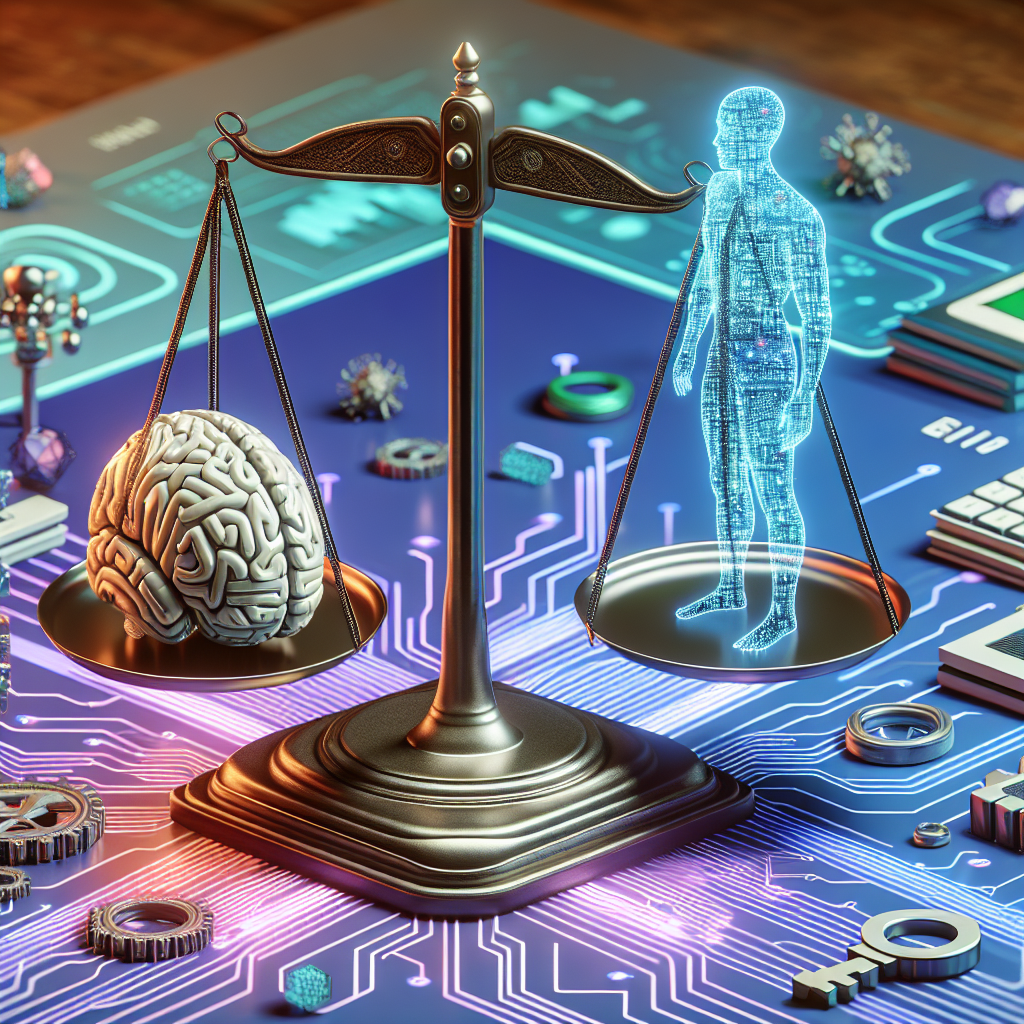Artificial General Intelligence (AGI) is a term used to describe a hypothetical form of artificial intelligence that possesses the ability to learn and understand any task that a human being can. While current AI systems excel at specific tasks, such as image recognition or natural language processing, AGI would be capable of performing a wide range of tasks with the same level of proficiency as a human. The development of AGI has the potential to revolutionize many aspects of society, from healthcare and transportation to education and entertainment. However, the rise of AGI also raises a number of ethical implications that must be carefully considered and addressed.
One of the primary ethical concerns surrounding AGI is the potential for the technology to surpass human intelligence and become uncontrollable. As AGI becomes more advanced, there is a risk that it could outstrip human understanding and control, leading to unpredictable and potentially dangerous outcomes. This raises questions about who should be responsible for overseeing AGI development and ensuring that it is used in a safe and ethical manner. Additionally, there is a concern that AGI could be used to manipulate or deceive individuals, leading to a loss of trust in AI systems and eroding social cohesion.
Another ethical concern related to AGI is the potential for bias and discrimination in AI algorithms. AI systems are only as good as the data they are trained on, and if that data is biased or incomplete, the AI system may produce biased or unfair outcomes. This raises questions about how to ensure that AI systems are fair and equitable, and how to address instances of bias or discrimination when they occur. Additionally, there is a concern that AGI could be used to perpetuate existing inequalities and reinforce social hierarchies, rather than promoting equality and justice.
Furthermore, the rise of AGI raises questions about the impact of automation on the workforce. As AI systems become more advanced, there is a risk that they could replace human workers in a wide range of industries, leading to widespread unemployment and economic disruption. This raises questions about how to ensure that the benefits of AGI are shared equitably, and how to support workers who are displaced by automation. Additionally, there is a concern that AGI could exacerbate existing inequalities by concentrating wealth and power in the hands of a few individuals or corporations.
In order to navigate the ethical complexities of AGI, it is essential for policymakers, researchers, and industry leaders to work together to develop a comprehensive ethical framework for AI development and deployment. This framework should address issues such as transparency, accountability, fairness, and safety, and should be informed by input from a diverse range of stakeholders, including ethicists, policymakers, technologists, and members of the public. By taking a proactive and collaborative approach to addressing the ethical implications of AGI, we can ensure that this transformative technology is used in a responsible and ethical manner.
FAQs:
Q: What is the difference between AGI and other forms of artificial intelligence?
A: AGI is a hypothetical form of artificial intelligence that possesses the ability to learn and understand any task that a human being can. Current AI systems, such as narrow AI or machine learning, are designed to perform specific tasks with a high level of proficiency, but lack the general intelligence and adaptability of AGI.
Q: What are some potential benefits of AGI?
A: AGI has the potential to revolutionize many aspects of society, from healthcare and transportation to education and entertainment. By harnessing the power of AGI, we can develop more advanced and efficient solutions to complex problems, improve decision-making processes, and enhance our understanding of the world around us.
Q: What are some potential risks of AGI?
A: One of the primary risks of AGI is the potential for the technology to surpass human intelligence and become uncontrollable. Additionally, there is a risk that AGI could be used to perpetuate bias and discrimination, automate jobs, and concentrate wealth and power in the hands of a few individuals or corporations.
Q: How can we address the ethical implications of AGI?
A: In order to address the ethical implications of AGI, it is essential for policymakers, researchers, and industry leaders to work together to develop a comprehensive ethical framework for AI development and deployment. This framework should address issues such as transparency, accountability, fairness, and safety, and should be informed by input from a diverse range of stakeholders.
In conclusion, the rise of AGI presents both exciting opportunities and significant challenges for society. By taking a proactive and collaborative approach to addressing the ethical implications of AGI, we can ensure that this transformative technology is used in a responsible and ethical manner. By developing a comprehensive ethical framework for AI development and deployment, we can navigate the complexities of AGI and harness its potential to benefit humanity.

